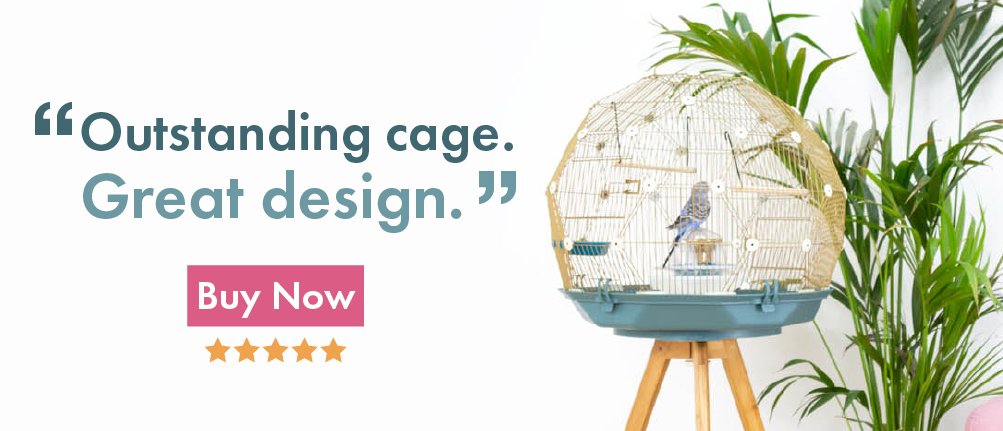If you’re making your own toys, there are a few DIY Don’ts:

It's best to keep parakeets away from children's toys
- Avoid anything woven, or any fabric or plastic that can be ripped. Parakeet body parts can get caught in these materials. This includes macramé items.
- Don’t use keyring fasteners. Parakeets are ingenious and will learn how to open these, exposing sharp areas and providing a potential throttling hazard.
- Be careful with skewers. They’re a handy way of linking toys and food items together, but they must be rust-proof, and you must make sure the sharp end is embedded in something the parakeets will not be able to chew through or dislodge.
- Rope toys need to be parakeet-friendly. The rope should be tightly wound and bound, and needs to be made from a natural fibre such as hemp, cotton, raffia or sisal (agave). Anything manmade, such as nylon, is too tough for a parakeet’s beak to cut through, and will come loose in dangerous loops and nooses. Parakeets will nibble and fray natural fibres, and if they come away in short tufts, that’s fine. But, again, if they come away in long strands you have a potential noose or toe-trap. Many bird-keepers assert that rope is fine, as long as you check its state every day and remove any long, loose fibres. Others advise avoiding rope altogether. It’s always best to err on the side of caution where a pet’s safety is at stake, and although rope is great for sturdier members of the parrot family, it may be a hazard for parakeets.
- Chains with open links. Chain links should always be welded. Open links can bend and expose sharp ends.
- Anything with nylon stitching. Parakeets will unpick stitching with the keen eye of the best seamstress. The bird could then become entangled in the loose threads.
- Children’s toys. Many of these will be fine, but do a safety check before introducing anything to the cage. Make sure there’s nothing rusty, sharp, painted, varnished, containing thread that can be unpicked, likely to alarm the bird (i.e. any toy that makes a noise, contains a liquid or can be punctured), or liable to trap any part of the avian anatomy.
Chains with large links. You need to avoid anything that could trap a parakeet’s head, foot or beak. The same rule applies whether the chain is made from plastic, metal, wood or grass.

Parakeets love to climb
- Leather. Make sure all leather ties and ropes have undergone a vegetable-based tanning process. Many leathers are tanned using chemicals lethal to parakeets. Avoid any coloured or stained leathers too. String, chain, leather strips or similar hangings. If a parakeet is clambering on single lengths of unweighted string or leather, it can become entangled. Many parakeet toys featuring short hanging chains are sold in pet shops, and you would be very unlucky indeed to encounter a problem with these; but it's always best to exercise caution.
- Metal parts. Lead and rusted iron are toxic for parakeets. Metal bird toys are usually galvanised with zinc to prevent rusting, and this is fine as long as the item has been electro-galvanised. If this is the case, it will have a shiny surface. Any dull galvanised metal has been hot-dipped in zinc, and this coating can flake off and poison your birds. Stainless steel is a trouble-free, but more expensive, alternative. The only lead you are likely to encounter is in bells and bell-clappers. If the bell or clapper bends easily, it’s probably made from lead.
- Toys with moving parts. You always need to make sure these can’t trap your parakeet. Play around with the toy first to make sure none of parts can become locked or wedged in any way.
- Spring fasteners. Never use any fastener that can potentially trap the bird’s toe, beak or tongue. This danger list includes spring-loaded fasteners, snap hooks (the kind that you use to attach a dog’s lead) and keyring-type fasteners.
- Hoops. Never use a hoop that could trap a parakeet’s head, foot, toe, beak or tongue. Bigger is definitely better.



Comments
Edith, 17 May 2021
To follow-up with the other comment, my budgie loves pegs and can play with them for hours and its her birthday soon and I'm trying to find safe toys for her, especially pegs. I was thinking about painting or colouring a peg or two with something attached to it, like a pom-pom or naturel string to tie around it, do you have any safe recommends for my bird? Please try to get back to me as quick as possible as her birthday is 6 days away.
Joy, 7 August 2019
Are wooden pegs safe for my budgies to play and chew on? Will they damage their beaks?